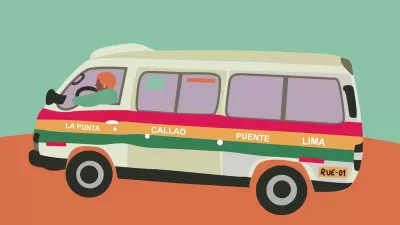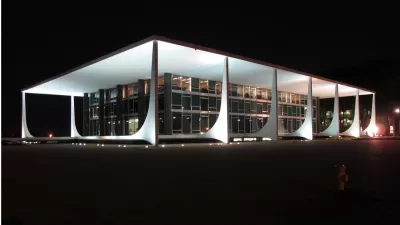Informal settlements like slums and favelas have been perplexing governments in Latin America for decades. A new report looks at two of the ways governments are addressing these areas, and the challenges that remain.
In this piece from Citiwire, Anthony Flint summarizes the report, and highlights the mixed successes of the two dominant approaches to legitimizing informal settlements.
"What is known as the "regularization" of informal settlement has taken two major forms: legalizing parcels by awarding the occupants titles to the property as exemplified in Peru, and Brazil's broader approach that combines titling with extensive upgrading of public services.
Both approaches have had an impact. But a report recently published by the Lincoln Institute, Regularization of Informal Settlements in Latin America, suggests that these efforts are very much a work in progress. Titling by itself is relatively inexpensive but has not triggered neighborhood improvements, while upgrading is much more costly and can stimulate additional irregular development by those hoping to benefit from future upgrading."
FULL STORY: Puzzles of Legalizing Squatters’ Settlements Worldwide

Study: Maui’s Plan to Convert Vacation Rentals to Long-Term Housing Could Cause Nearly $1 Billion Economic Loss
The plan would reduce visitor accommodation by 25,% resulting in 1,900 jobs lost.

Alabama: Trump Terminates Settlements for Black Communities Harmed By Raw Sewage
Trump deemed the landmark civil rights agreement “illegal DEI and environmental justice policy.”

Why Should We Subsidize Public Transportation?
Many public transit agencies face financial stress due to rising costs, declining fare revenue, and declining subsidies. Transit advocates must provide a strong business case for increasing public transit funding.

Paris Bike Boom Leads to Steep Drop in Air Pollution
The French city’s air quality has improved dramatically in the past 20 years, coinciding with a growth in cycling.

Why Housing Costs More to Build in California Than in Texas
Hard costs like labor and materials combined with ‘soft’ costs such as permitting make building in the San Francisco Bay Area almost three times as costly as in Texas cities.

San Diego County Sees a Rise in Urban Coyotes
San Diego County experiences a rise in urban coyotes, as sightings become prevalent throughout its urban neighbourhoods and surrounding areas.
Urban Design for Planners 1: Software Tools
This six-course series explores essential urban design concepts using open source software and equips planners with the tools they need to participate fully in the urban design process.
Planning for Universal Design
Learn the tools for implementing Universal Design in planning regulations.
Smith Gee Studio
Alamo Area Metropolitan Planning Organization
City of Santa Clarita
Institute for Housing and Urban Development Studies (IHS)
City of Grandview
Harvard GSD Executive Education
Toledo-Lucas County Plan Commissions
Salt Lake City
NYU Wagner Graduate School of Public Service




























